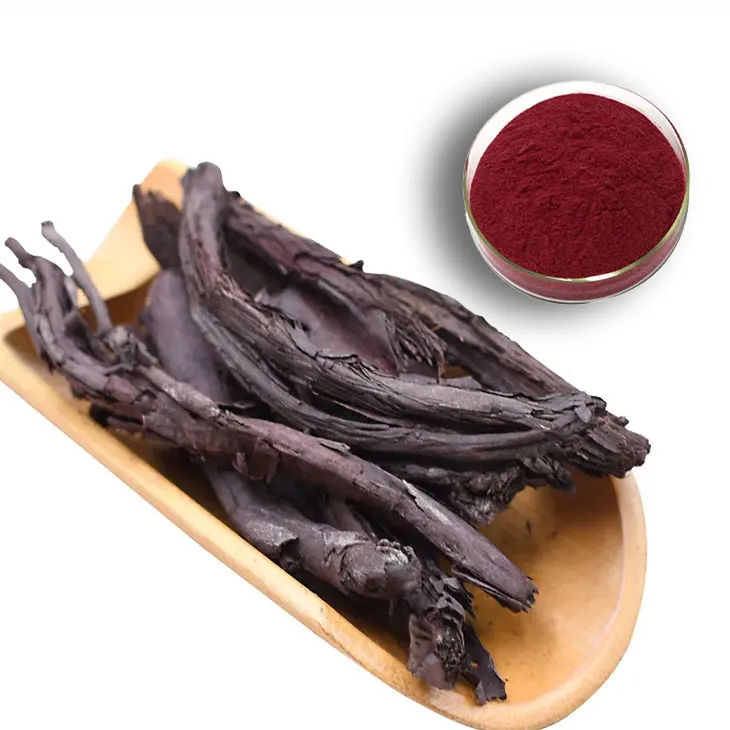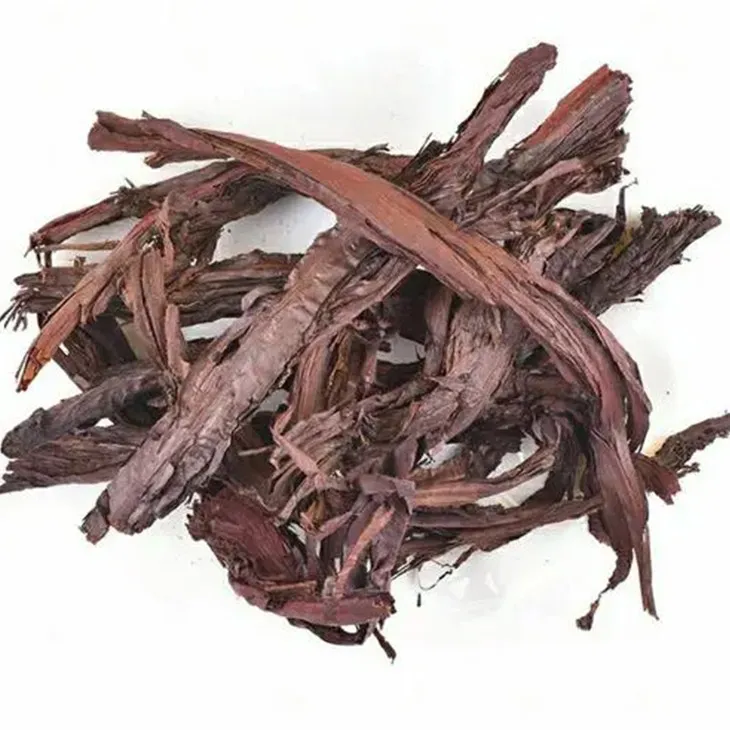- 0086-571-85302990
- sales@greenskybio.com
Purchase shikonin in batches in an economical and efficient way.
2024-12-10

1. Introduction
Shikonin is a valuable compound with various applications in the fields of medicine, cosmetics, and more. When it comes to purchasing Shikonin in batches, it is crucial to do so in an economical and efficient manner. This article will explore the key aspects that need to be considered in order to achieve this goal.

2. Finding Reliable Suppliers
2.1 Qualification Review
One of the first steps in purchasing Shikonin in bulk is to find reliable suppliers. Qualification review is an essential part of this process. Suppliers should be evaluated based on their production capabilities. For example, they should have proper manufacturing facilities that are compliant with relevant industry standards. This includes having appropriate production lines for extracting and purifying shikonin.
Additionally, their technological know - how should be examined. A supplier with advanced extraction and purification techniques is more likely to provide high - quality shikonin. They should also have a stable source of raw materials. If the raw materials are not of consistent quality or are in short supply, it can affect the overall production and quality of shikonin.
2.2 Reputation Assessment
Reputation assessment is equally important. Look at the supplier's track record in the market. Have they had any issues with product quality in the past? A supplier with a history of quality problems should be avoided. Check customer reviews and testimonials. Positive feedback from other buyers indicates that the supplier is likely to be reliable.
Industry reputation also matters. Suppliers that are well - respected within the shikonin industry are more likely to adhere to ethical and quality - based business practices. They may also be more likely to have good relationships with regulatory bodies, which can ensure compliance with all relevant regulations.

3. Consideration of Purchase Scale for Scale Economy
3.1 Understanding Scale Economy in Shikonin Purchase
When purchasing shikonin, scale economy can play a significant role in reducing costs. Generally, as the purchase scale increases, the unit cost per quantity of shikonin may decrease. This is because larger orders can often lead to better deals from suppliers. For example, suppliers may offer volume - based discounts. They may also be more willing to negotiate on other terms such as delivery times and payment terms when dealing with a large - scale purchase.
However, it is important to carefully assess the optimal purchase scale. Buying too much shikonin may lead to issues such as storage costs and potential product expiration if the demand does not match the large - scale purchase. On the other hand, buying too little may miss out on the cost - saving opportunities of scale economy.
3.2 Determining the Optimal Purchase Scale
To determine the optimal purchase scale, one needs to analyze historical data on demand. If there is a consistent and growing demand for shikonin in the organization's operations, a larger purchase scale may be justified. Market trends also need to be considered. For example, if the market for shikonin - based products is expected to expand in the near future, it may be wise to increase the purchase scale.
Additionally, financial capabilities should be taken into account. A large - scale purchase may require a significant amount of capital upfront. The organization needs to ensure that it has the financial resources to make such a purchase without straining its cash flow. Collaboration with other potential buyers can also be an option. By pooling resources and making a joint large - scale purchase, smaller organizations can also benefit from scale economy.

4. Smart Price Negotiation
4.1 Researching Market Prices
Before entering into price negotiations with suppliers, it is essential to research market prices of shikonin. This involves gathering information from multiple sources. Online platforms, industry reports, and trade associations can be valuable sources of information on current market prices. By having a good understanding of the market price range, buyers can have a more informed position during negotiations.
Comparison of prices among different suppliers is also crucial. This allows buyers to identify suppliers that may offer more competitive prices. However, it is important to note that price should not be the only factor considered. Quality and reliability of the supplier also need to be taken into account.
4.2 Negotiation Strategies
When negotiating prices, negotiation strategies need to be employed. One effective strategy is to emphasize the long - term business relationship. If the buyer can convince the supplier that they are interested in a long - term partnership, the supplier may be more willing to offer favorable prices. Another strategy is to offer something in return. For example, the buyer could offer to provide early payment in exchange for a price discount.
Group purchasing can also strengthen the negotiation position. If multiple buyers come together to make a large - scale purchase, they can have more bargaining power. Additionally, being aware of the supplier's cost structure can be helpful. If the buyer knows what the supplier's costs are, they can negotiate prices more effectively. However, this information may not always be easy to obtain.
5. Quality Control
5.1 Establishing Detection Standards
Quality control is of utmost importance when purchasing shikonin in bulk. Establishing detection standards is the first step in ensuring quality. These standards should cover various aspects such as the purity of shikonin. High - purity shikonin is often required for applications in medicine and high - end cosmetics. The detection standards should also include tests for contaminants. For example, there should be limits on heavy metals and other harmful substances.
Analytical methods need to be specified in the detection standards. Common methods such as HPLC (High - Performance Liquid Chromatography) can be used to accurately measure the content and purity of shikonin. The detection standards should be in line with international and national regulatory requirements to ensure that the purchased shikonin can be used legally in various applications.
5.2 Contract - Based Quality Assurance
In addition to establishing detection standards, contract - based quality assurance is necessary. The purchase contract should clearly state the quality requirements for shikonin. This includes the purity levels, limits on contaminants, and any other relevant quality parameters. The supplier should be held accountable for providing shikonin that meets these quality requirements.
Penalty clauses can be included in the contract for non - compliance with quality requirements. For example, if the supplied shikonin does not meet the specified purity levels, the supplier may be required to provide a refund or replacement. Regular quality audits can also be specified in the contract. The buyer may have the right to conduct audits at the supplier's facilities to ensure compliance with quality standards.
6. Transportation and Storage Management
6.1 Choosing Proper Transport Ways
Transportation of shikonin needs to be carefully managed. Different transport ways have different advantages and disadvantages. For example, air transport is relatively fast but can be expensive. It may be suitable for urgent deliveries or for shikonin with a high value - to - weight ratio. Sea transport, on the other hand, is generally more cost - effective for large - volume shipments but may take longer.
Road transport can offer flexibility, especially for shorter distances or for deliveries to inland locations. The choice of transport way should depend on factors such as the quantity of shikonin being transported, the delivery time requirements, and the cost - effectiveness. It is also important to ensure that the transport carrier has the appropriate facilities and expertise to handle shikonin safely. For example, shikonin may need to be transported under specific temperature and humidity conditions.
6.2 Creating Good Storage Conditions
Storage conditions for shikonin are crucial to maintain its quality. Shikonin should be stored in a cool, dry, and dark place. Exposure to sunlight, high temperatures, or high humidity can cause degradation of shikonin. Adequate ventilation should be provided in the storage area to prevent the buildup of moisture.
Storage containers also play an important role. They should be made of appropriate materials that do not react with shikonin. For example, glass or certain types of plastic containers may be suitable. Proper labeling of the storage containers is necessary to ensure easy identification and to prevent mix - ups. Additionally, inventory management systems should be in place to keep track of the quantity and quality of shikonin in storage. Regular inspections should be carried out to detect any signs of deterioration early.
7. Conclusion
Purchasing shikonin in batches in an economical and efficient way requires careful consideration of multiple aspects. From finding reliable suppliers through qualification review and reputation assessment, to taking advantage of scale economy, smart price negotiation, ensuring quality control, and proper transportation and storage management, each step is crucial. By following these guidelines, buyers can increase their chances of obtaining high - quality shikonin at a reasonable cost while also ensuring the efficiency of the entire purchasing process.
FAQ:
Q1: How can I find reliable suppliers for shikonin?
You can find reliable suppliers through qualification review and reputation assessment. Check their business licenses, production certifications, and any relevant industry accreditations. Look for reviews from other customers in the industry, and if possible, visit their production facilities or ask for samples to test the quality of their shikonin.
Q2: What is the importance of considering the purchase scale?
Considering the purchase scale is important for achieving scale economy. When you buy shikonin in larger quantities, suppliers are often more likely to offer better prices due to the economies of scale. It can also lead to more favorable terms in other aspects such as delivery schedules and after - sales service.
Q3: How can I negotiate prices smartly?
To negotiate prices smartly, first, do thorough market research to understand the current price range of shikonin. Then, based on your purchase scale, cost analysis, and market trends, present a reasonable offer to the supplier. Highlight your long - term business potential or any unique value you can bring to the supplier, such as stable orders or positive market influence. Also, be prepared to make concessions on non - price factors like delivery time or payment terms to reach a win - win agreement.
Q4: Why is quality control essential when purchasing shikonin?
Quality control is essential because shikonin of poor quality may not meet the intended applications, whether it is for pharmaceutical use, cosmetics, or other industries. Establishing detection standards helps ensure that the shikonin meets the required purity, potency, and safety levels. Contract - based quality assurance provides legal protection and a clear framework for both the buyer and the supplier to ensure that the quality is maintained throughout the purchase process.
Q5: What are the key points in transportation and storage management of shikonin?
In transportation, choosing proper transport ways is crucial. Shikonin may be sensitive to factors such as temperature, light, and humidity. So, using temperature - controlled transportation for sensitive forms of shikonin, protecting it from light exposure, and ensuring proper packaging to prevent damage during transit are important. For storage, creating good storage conditions involves maintaining a stable temperature, humidity, and proper ventilation. Storing shikonin away from sources of contamination and following proper inventory management practices to ensure the freshness and quality of the product over time.
Related literature
- Optimization of Shikonin Production and Procurement"
- "Economic Considerations in Bulk Purchase of Shikonin"
- "Quality Assurance in Shikonin Supply Chains"
- ▶ Hesperidin
- ▶ Citrus Bioflavonoids
- ▶ Plant Extract
- ▶ lycopene
- ▶ Diosmin
- ▶ Grape seed extract
- ▶ Sea buckthorn Juice Powder
- ▶ Fruit Juice Powder
- ▶ Hops Extract
- ▶ Artichoke Extract
- ▶ Mushroom extract
- ▶ Astaxanthin
- ▶ Green Tea Extract
- ▶ Curcumin
- ▶ Horse Chestnut Extract
- ▶ Other Product
- ▶ Boswellia Serrata Extract
- ▶ Resveratrol
- ▶ Marigold Extract
- ▶ Grape Leaf Extract
- ▶ New Product
- ▶ Aminolevulinic acid
- ▶ Cranberry Extract
- ▶ Red Yeast Rice
- ▶ Red Wine Extract
-
Beetroot Powder
2024-12-10
-
Acerola Extract
2024-12-10
-
Angelica sinensis extract
2024-12-10
-
Shikone Extract
2024-12-10
-
White mustard seed extract
2024-12-10
-
Camu Camu Extract
2024-12-10
-
Uridine-5'-monophosphate Disodium salt
2024-12-10
-
Troxerutin
2024-12-10
-
Dandelion Root Extract
2024-12-10
-
Hesperidin
2024-12-10





















